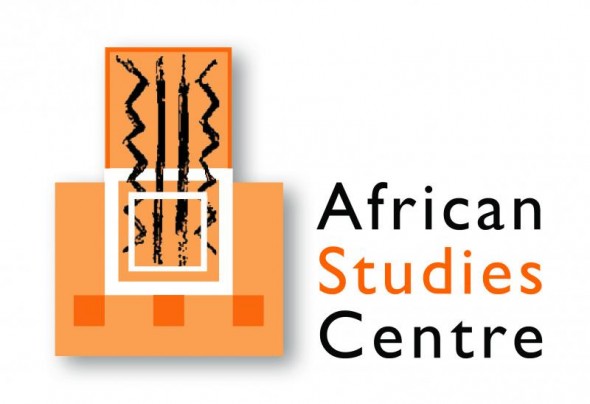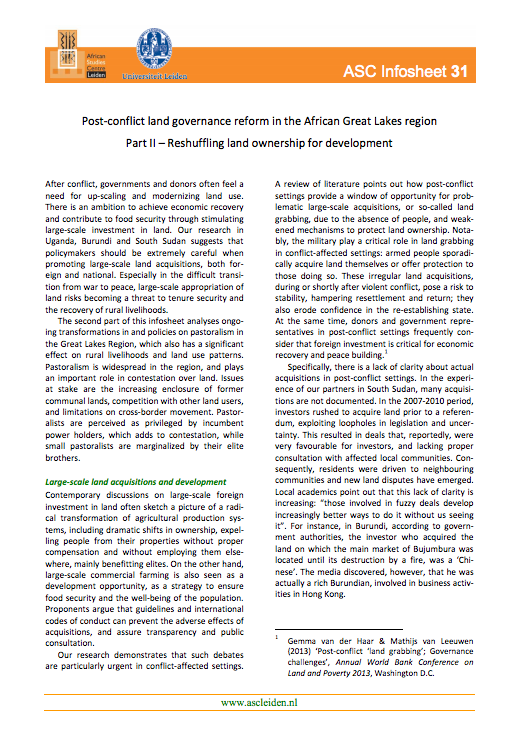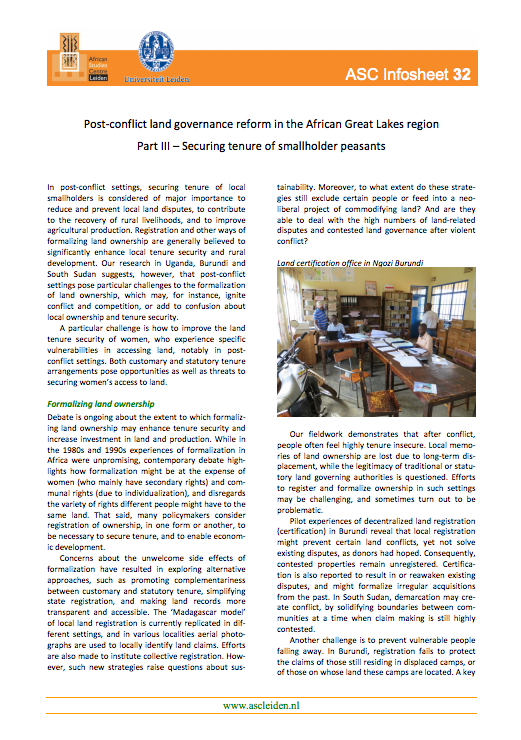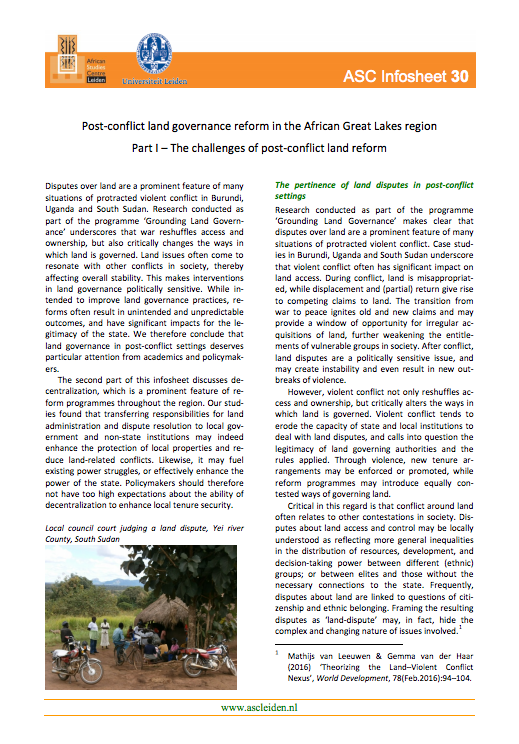Location
Mission statement
The African Studies Centre Leiden is a knowledge institute that undertakes research and is involved in teaching about Africa and aims to promote a better understanding of and insight into historical, current and future developments in Africa.
The institute is located in the Pieter de la Court Building of the Faculty of Social Sciences of the University of Leiden.
Main objectives:
- To promote and undertake scientific research on Africa;
- To function as a national centre in the field of African studies and to contribute to education and teaching in these studies;
- To promote the dissemination of knowledge and an understanding of African societies in the wider public sphere.
Members:
Resources
Displaying 1 - 5 of 8Post-conflict land governance reform in the African Great Lakes region. Part II - Reshuffling land ownership for development
After conflict, governments and donors often feel a need for up-scaling and modernizing land use. There is an ambition to achieve economic recovery and contribute to food security through stimulating large-scale investment in land. Our research in Uganda, Burundi and South Sudan suggests that policymakers should be extremely careful when promoting large-scale land acquisitions, both foreign and national. Especially in the difficult transition from war to peace, large-scale appropriation of land risks becoming a threat to tenure security and the recovery of rural livelihoods.
Post-conflict land governance reform in the African Great Lakes region. Part III - Securing tenure of smallholder peasants
In post-conflict settings, securing tenure of local smallholders is considered of major importance to reduce and prevent local land disputes, to contribute to the recovery of rural livelihoods, and to improve agricultural production. Registration and other ways of formalizing land ownership are generally believed to significantly enhance local tenure security and rural development.
Post-conflict land governance reform in the African Great Lakes region. Part I - The challenges of post-conflict land reform
Disputes over land are a prominent feature of many situations of protracted violent conflict in Burundi, Uganda and South Sudan. Research conducted as part of the programme ‘Grounding Land Governance’ underscores that war reshuffles access and ownership, but also critically changes the ways in which land is governed. Land issues often come to resonate with other conflicts in society, thereby affecting overall stability. This makes interventions in land governance politically sensitive.
Groundwater for irrigation in Cambodia
A discussion paper by Robyn Johnston, Michael Roberts, Thuon Try and Sanjiv de Silva on groundwater for irrigation in Cambodia, published by International Water Management Institute, Colombo, Sri Lanka, iDE Cambodia in June 2013.
The assertion of rights to agro-pastoral land in North Cameroon: a cascade to violence?
What are the key causalities in the linkages between environmental resource scarcity, the non-violent assertion of rights to the environment and the (non) avoidance of violence itself? Focusing on the natural resource land, the author studies three different cases of conflict over land at the local level in Diamar‚, Baba Deli and Kubadje, in the extreme north of Cameroon, from 2001 to 2004, using different sociological, geographical and anthropological methods.






